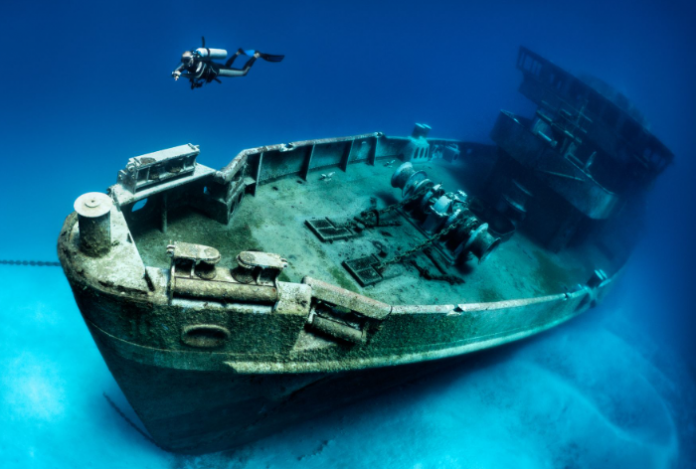During the production of a documentary focused on a particular mussel species found in the Great Lakes, Yvonne Drebert and Zach Melnick, two filmmakers, came across a shipwreck that had disappeared from the records 128 years ago. As they were capturing footage of the invasive quagga mussel in Lake Huron, they chanced upon the Africa, a steamship that had vanished in October 1895 while transporting coal from Ohio to Ontario, according to a report by Fox Weather.
According to the news outlet, Africa disappeared following a single night on the stormy and blustery Lake Huron. Similarly, Drebert and Melnick encountered challenging weather conditions as they conducted their search for the invasive mussel species.
Upon the detection of a substantial object by Drebert and Melnick’s underwater drone, they, along with their team, deployed a robotic camera to obtain a more detailed view. While the camera was capturing images of the mussels they had been studying, their amazement was sparked when they noticed a shadow entering the frame.
“It got more and more definition as we got closer and closer, and all of a sudden, we could see, ‘Wow! This is a steamship, a wooden steamship,’” Melnik remarked.
It appears that the invasive mussels, which drew the attention of the two filmmakers to Lake Huron, might have stumbled upon the hidden treasure first. The steamship is now coated with mussels, aiding in the recognition of the wreck, but unfortunately, these invasive species will eventually cause harm to the ship’s structure. Identifying the vessel as the Africa was made possible by evaluating its size and the presence of coal remnants surrounding the wreck.
The film crew’s uncovering of the shipwreck sparked enthusiasm among them, while simultaneously providing a sense of resolution to the families of the crew members who had disappeared in the tragic shipwreck.
The organization’s website reads, “These organisms clog water intake structures (e.g., pipes and screens), which greatly increases maintenance costs for water treatment and power plants. Recreational activities on lakes and rivers are adversely affected as mussels accumulate on docks, buoys, boat hulls, anchors and beaches can become heavily encrusted. Interestingly, invasions by quagga and zebra mussels have been documented as having some positive affects on receiving ecosystems. For example, filtration of water by mussels as they extract food removes particulate matter. This filtration has improved water clarity, and reduced the eutrophication of polluted lakes.”








